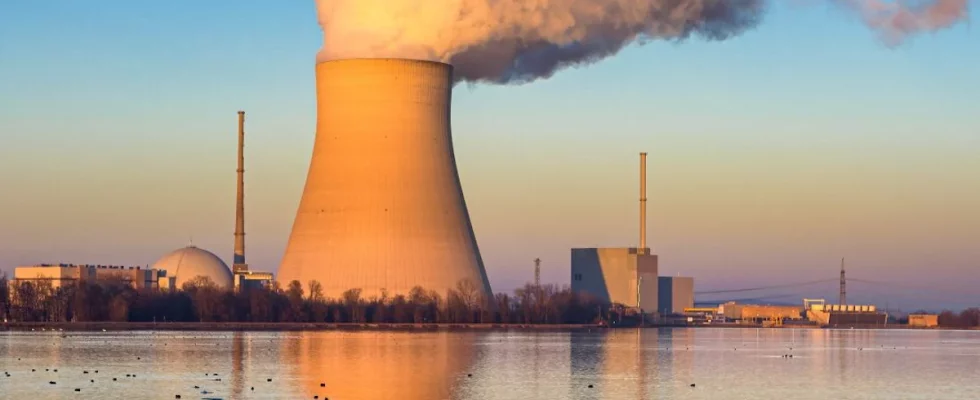For Michael Kruse, the matter is clear: Germany has been left behind when it comes to nuclear power. “I am disappointed in Robert Habeck,” says the FDP energy politician. “The truth was withheld from the citizens of this country and also from its coalition partners.” What’s more: In a historic energy crisis, Habeck did not opt for the well-being of the country, but rather for green “party ideology.” CSU General Secretary Martin Huber even considers the Economics Minister to be “no longer acceptable” and is talking about “secret files”.
It’s about documents from the ministries of economics and the environment, which the magazine Cicero some complained about it and about it on Thursday too Picture reported. The focus is on a note from the Ministry of Economic Affairs, dated March 3, 2022, a good ten days after the start of the war in Ukraine. The note is there South German newspaper before. Habeck’s officials carry out a “preliminary energy economic assessment” of longer operating times for German nuclear power plants, up to March 31, 2023.
The fuel rods were designed for shutdown in December
The paper is sober. “It is currently unclear what measures are necessary to reduce gas consumption in the electricity sector as much as possible in the short term,” it says at the beginning. There is enough coal available to ease bottlenecks. However, there could also be days in January and February when things could get tight because demand can only be met with gas-fired power plants. However, how much gas will be in the storage facilities is completely unclear in those days after the start of the war. “An extension of the operational life of the nuclear power plants until March 31 can help defuse this situation,” the officials write. It could also curb electricity prices and network costs and should therefore be further examined. However, a final decision should only be made after further calculations, the results of which will be available at the end of March.
The nuclear phase-out was already casting its shadow back then. Finally, the last three nuclear power plants are scheduled to finally go offline on December 31, 2022. But just a week after the start of the war, discussions about opting out of the exit flared up. The minimal version was to “extend” nuclear power plant operations beyond the winter. Because their fuel rods were actually designed to be switched off in December. The power plants should have been operated in such a way that they could still have started in January and February. But the Atomic Energy Act would have had to be changed to achieve this – a delicate decision for the Greens.
The Environment Ministry, which is responsible for reactor safety, is also sending its people on the trail. They draw up a similarly sober note: Among the three options they considered at the time, there was even a year-long extension of the terms. The officials primarily investigate practical questions and cannot answer every one of them. In principle, they believe, many things are “compatible with maintaining nuclear safety.” Another note from the ministry, however, is much more critical on this issue.
The energy companies saw it similarly to the green ministries
The preparatory work will result in a joint audit report from the Ministry of Economics and the Environment on March 8th. It says that stretch operations are possible until March 2023. However, the risks outweigh the risks. An extension of the term is “not recommended”. That sounds a little different than some of the officials’ preliminary work.
However, the vote of the two Green ministries at this point is in line with the German nuclear companies. The RWE Group, for example, warned just four days after the start of the war of “significant legal and economic risks” if operations continued, and there was also a lack of staff. The ministry receives a list of reservations from the Eon Group. “It doesn’t fit with our strategic orientation,” says CEO Leonhard Birnbaum. It was only later that the wind changed for the Eon subsidiary PreussenElektra.
Overall, things only really come to a head in the following months. When Russia stopped gas deliveries through the Baltic Sea at the end of August, gas and electricity prices went through the roof – and the Greens also opened up to extended operations, at least for southern German reactors. Because the FDP wanted significantly longer running times, the Chancellor finally had to put an end to the dispute: the three reactors should now be allowed to operate until April 15, 2023. That’s how it happened.
But the wounds have obviously not yet healed. “The audit was always open-ended and transparent,” emphasizes the Ministry of Economics. The focus has always been on security of supply. And in fact, Habeck never gave the impression that he was overly attached to the nuclear phase-out – much to the annoyance of party friends. The Ministry of the Environment also feels grossly misunderstood: they checked “carefully and exclusively in a fact-oriented manner”. Of course, legal questions are at the center of nuclear supervision.
But the opposition demands clarification. There is a suspicion of lying, wrote the Parliamentary Managing Director of the Union parliamentary group, Thorsten Frei, on Thursday on Platform X. Habeck must immediately put all files on the table. “Otherwise there is a risk of repercussions.”

